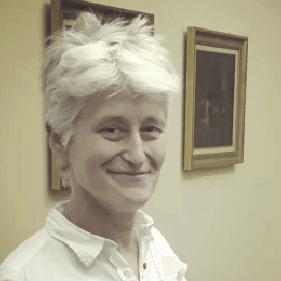SEARCH THE ENTIRE SITE

Seminar "Indigeneity, hybridity, anthropophagy (II)" #5
The 05/18/2022 from 5:30 pm to 7:30 pmElizabeth A. Povinelli and Brook Andrew
The rise in visibility of Indigenous practices in international contemporary art is a major phenomenon in the history of art being written, with the risk, at times, of becoming a simple label. The terms “hybridity” and “anthropophagy” (in reference to the “Cannibalist Manifesto” of Oswald de Andrade) were thus attached to Indigeneity to avoid identity assignments and to question the invention of variable practices and identities, thwarting the categories inherited from colonialism and making it possible to rethink the relationship to nature, territory, humans and other than humans.
For this second session in relationship with the exhibition Reclaim the Earth, the Palais de Tokyo invites Elizabeth A. Povinelli, a founding member of the Karrabing Film Collective, proposes to be Standing Firm in Collapsed Worlds. The collective has come up with a unique, baroque cinema, a skillful blend of satire and political/legal subversion in defence of their identity, their rights, and the power of the imagination. This talk juxtaposes one of her recent works Alice Henry and the Chronicle of the Collapse of the Western Plateau, with the Karrabing Film Collective’s latest medium-length film The Family & the Zombie (2021) presented in the exhibition Reclaim the Earth. Both works feature future ancestors navigating worlds of toxicity to explore relational survivance and the status of storytelling. This intervention is online and in English.
Then, the artist and writer Brook Andrew presents ngaay girr (see object). According to him, “Objects of desire, extreme curiosity and even bafflement are often taken away, stolen and hidden, re-written and smashed apart. He says: “I am interested in how my own Wiradjuri (Aboriginal Australian) cultural heritage is reflected in museums and to what degree they exist for me now. Finding new ways to remember and remake objects from my parents’ cultures is central to my practice. This speaks to reparations and healing, to flipping power, to safeguarding a different kind of girri (future). One that is not all consumed by the colonial wuba (hole).” This intervention is onsite and in English.
Co-conception Morgan Labar (Associate Professor, ARTS Department, ENS) and Daria de Beauvais (Senior Curator, Palais de Tokyo). In partnership with the École Normale Supérieure (Paris).


